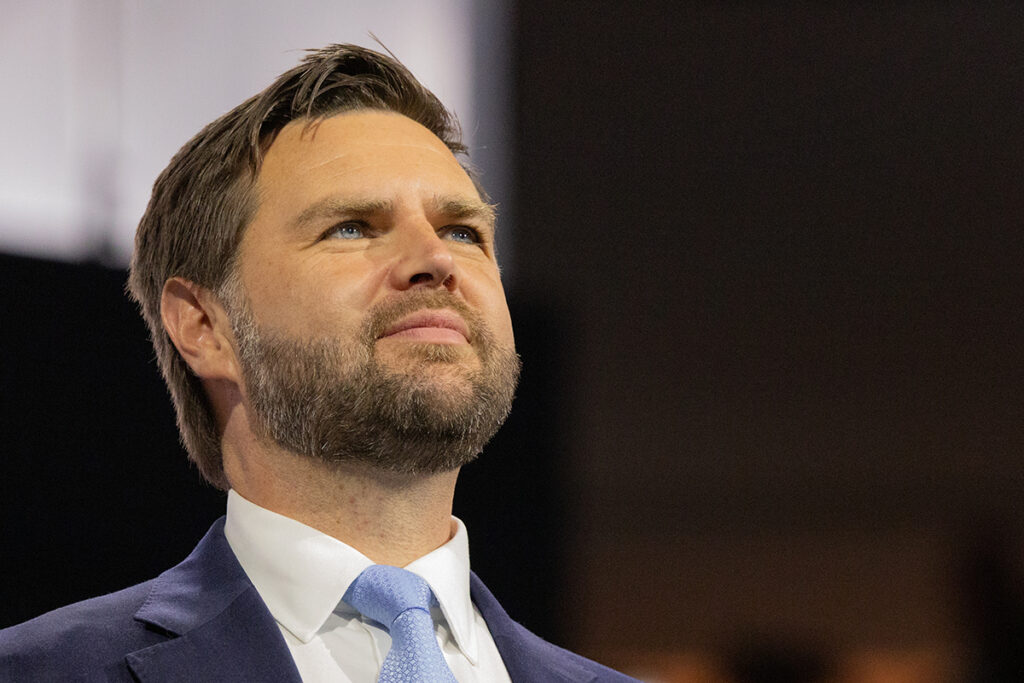U.S. Vice President JD Vance took a strong stance against strict artificial intelligence (AI) regulations at the Paris AI Summit, warning that excessive oversight could stifle innovation and hinder technological progress. His speech marked a clear rejection of Europe’s regulatory framework, positioning the United States under President Donald Trump as a champion of a free-market approach to AI development. While European leaders emphasized the need for ethical safeguards, China continued to expand its influence in the global AI race, highlighting a growing divide in how nations approach this transformative technology.
U.S. Rejects AI Regulation While Europe Tightens Controls
The United States opted out of an international AI agreement signed by over 60 countries, including China, reinforcing its opposition to strict regulatory measures. The agreement outlined commitments to making AI ethical, secure, and inclusive while reducing digital divides and ensuring sustainability. The European Union, having already implemented the world’s first comprehensive AI law under the AI Act in August 2024, continues to push for stricter oversight to protect consumer rights, intellectual property, and democratic values.
Vance argued that Europe’s regulatory framework could deter innovation, stating that AI represents a modern industrial revolution with vast economic potential. European Commission President Ursula von der Leyen acknowledged concerns about bureaucratic obstacles but maintained that regulation was necessary to build public trust in AI. Meanwhile, French President Emmanuel Macron positioned Europe as a middle ground between the U.S. and China, advocating for a balance between innovation and control.
China Expands AI Influence Amid U.S.-Europe Tensions
China’s approach to AI development has raised concerns among Western nations, as it combines rapid state-backed expansion with efforts to shape global AI governance. By signing the international AI agreement, Beijing signaled a willingness to engage in cooperative rule-making, but its domestic policies remain focused on strengthening government control over AI technologies.
Chinese officials criticized Western limits on AI access while promoting open-source AI as a global benefit. However, security analysts warn that China’s push for open-source development could extend its influence into international markets. Meanwhile, U.S. officials remain wary of China’s AI ambitions, particularly as AI-driven technologies become more integral to defense and national security.
AI Governance Becomes a Battleground for Global Influence
The Paris summit underscored how AI has become a key factor in global power struggles, with Washington and Brussels clashing over regulatory strategies while China continues to strengthen its AI dominance. Vance took aim at foreign governments for tightening restrictions on American tech firms, further highlighting tensions between USA and its European allies.
Additionally, concerns over AI’s role in global security were raised, with NATO officials emphasizing the need for regulation to prevent AI from spiraling beyond human control. As governments grapple with these challenges, a new global initiative, “Current AI,” was launched to support large-scale public AI projects. However, uncertainty remains over whether the U.S. will actively participate in such collaborative efforts.
The Future of AI Governance Remains Uncertain
Beyond government policy, the private sector is witnessing its own high-stakes AI battle. Investors led by Elon Musk, who now oversees Trump’s Department of Government Efficiency, made a staggering $97.4 billion bid to acquire OpenAI, a move swiftly rejected by the company’s CEO, Sam Altman. With regulatory frameworks still evolving, the AI sector remains a rapidly shifting landscape, shaped by political tensions, corporate ambitions, and global power struggles. As the U.S., Europe, and China continue to forge separate paths, the future of AI governance remains uncertain, with implications that could shape technological progress for generations to come.


